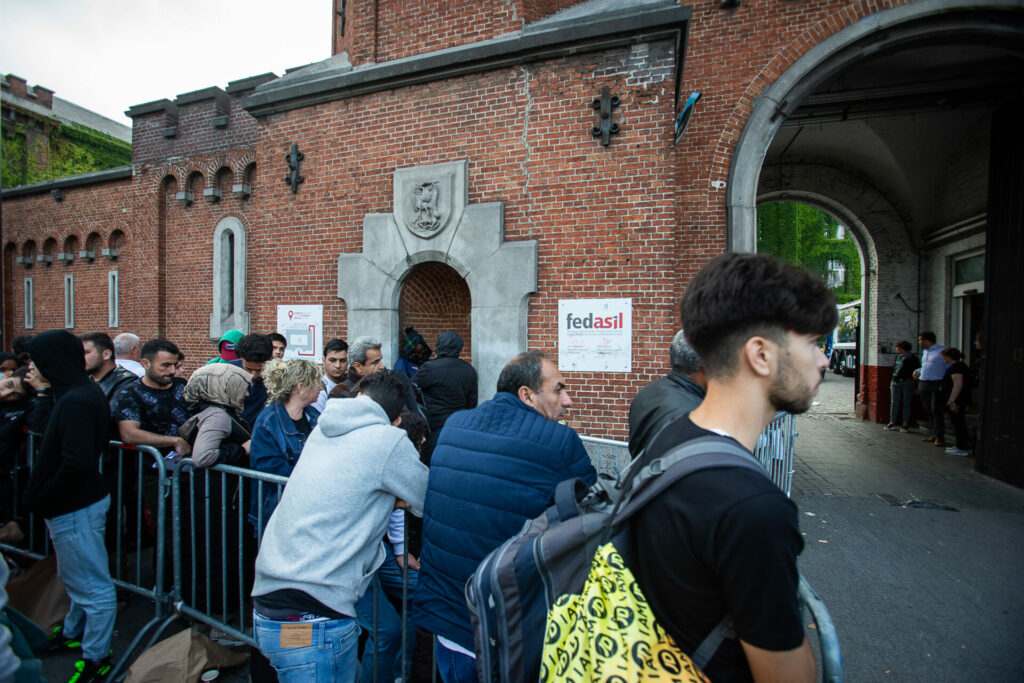The Brussels Regional Government on Friday announced it was working on creating 100 new reception places for unaccompanied minors, many of whom have been sleeping rough due to the Federal Government's failure to provide sufficient capacity.
Since early October, many young, unaccompanied asylum seekers who apply for international protection in Belgium are not given the shelter (bed, bath and food) that they are legally entitled to, resulting in them sleeping rough. Some have been left on the streets for months.
The regional government, on the proposal of its Minister-President Rudi Vervoort, has now arranged the provision of 100 additional sleeping places for unaccompanied foreign minors.
"We must never accept minors sleeping on the streets. The reception of unaccompanied foreign minors is the responsibility of the Federal Government and I will continue to insist that it fulfils its obligations," Vervoort said.
"In the meantime, however, we continue to assume our responsibility and accommodate these youngsters in a safe and warm place."
A home until June next year
New Samusocial, an emergency facility for people without accommodation located in Anderlecht, will receive a grant to coordinate the reception. The young people will be able to stay in the new reception centre until at least 30 June 2023, once the fire brigade has given its approval that it is safe to house people.
The response of some of the region's local municipalities to the crisis has been questionable. Mayor of the City of Brussels Philippe Close ordered the Brussels police to take down 17 cardboard tents in which underage asylum seekers were sleeping. The Mayor of Molenbeek Catherine Moureaux also closed down a building initially designed to shelter Ukrainian refugees because it was turned into a reception centre for other asylum seekers.
However, as the only asylum registration centre in the country is located here, the region receives the bulk of asylum seekers. The costs it covers to provide them shelter as a result of the homeless issue created by the Federal Government are way above those of Flanders and Wallonia.
Related News
- 'Risk of superinfection' among 700 asylum seekers who are left in freezing cold
- Asylum reception crisis: Temporary MSF clinic reveals human cost of crisis
Earlier this week, it was confirmed the Brussels Region will receive €20 million per year as part of a convention with the Federal Government to compensate the additional expenses covered by the capital to deal with the homeless issue, exacerbated by the ongoing reception crisis.
Vervoort confirmed that this additional support measure "follows the recognition from Federal Government for the Region's complementary efforts."
Belgium's reception crisis explained
For more than a year now, hundreds of asylum seekers have been sleeping rough as a result of Belgium's failure to provide them with the shelter they are legally entitled to.
Fedasil, Belgium's Federal Asylum agency, operates several reception centres across Belgium (of which Petit Château in Brussels has become the most notorious), where people who have been granted asylum in the country should receive a bed, bath and food (or a sheltered place).
Once the rush of asylum seekers coming to the country temporarily slowed down following the migration crisis, the government reduced the number of sheltered places, closing down Fedasil centres.
Since October last year, this figure is once again increased slowly, and the government is not responding to the rise in demand for sheltered places.
Instead, it created a waiting list which prioritised minors and families with children, leaving single men to sleep on the streets, and resulting in Fedasil being convicted more than 4,500 times for failing to provide shelter.

